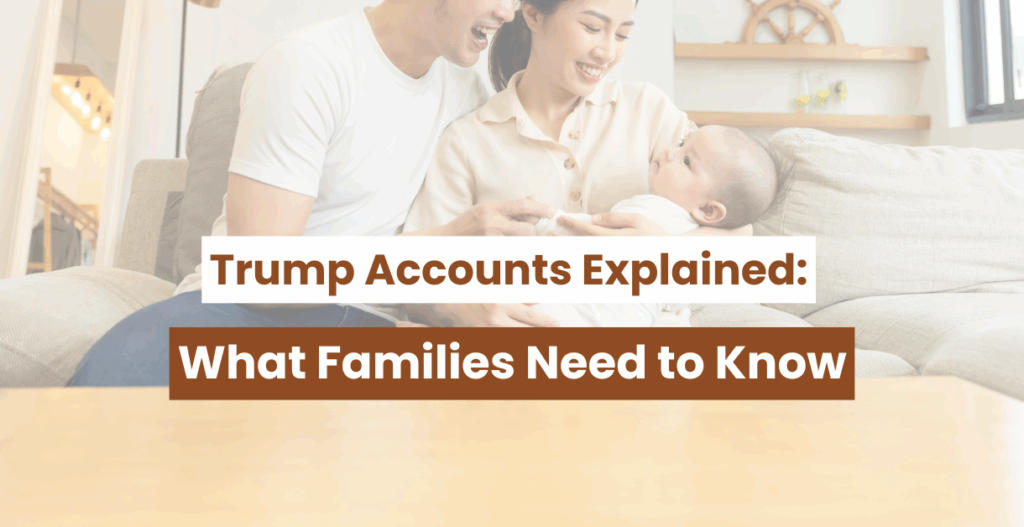

Renee Tiun
Renee, a foreign-trained attorney at Basswood Counsel, specializes in taxation, corporate law, and estate matters, bringing over a decade of experience from Malaysia and a client-focused approach.
This is a follow-up to our previously published articles, where we introduced the major provisions of the OBBBA impacting individual taxpayers.
- The One Big Beautiful Bill Act: What It Is and How It Affects Individuals
- Navigating the One Big Beautiful Bill Act: Key Tax Updates for Individuals
- Powering Down: EV and Clean Energy Credits Set to Expire
- Making Child Care More Affordable: What the One Big Beautiful Bill Means for Families at Home and Abroad
One of the many new provisions that was signed into law earlier this year with the One Big Beautiful Bill Act was the Trump Accounts provision. One of the appeals of a Trump Account is a promise of a $1,000 initial deposit from the government for eligible newborns.
What is a Trump Account?
A Trump Account is a savings account for children under 18, into which parents and others may contribute up to $5,000 annually until the child turns 18. The $5,000 limit will be adjusted for inflation from 2027 onwards. Contributions into the account are nondeductible by the contributors. However, employers can contribute up to $2,500 to Trump Accounts of the employee or their dependent, and it will not count towards the gross income of the employee. Employer contributions to Trump Accounts can be treated as deductible wage expenses if they are made under a separate written plan that complies with non-discrimination rules and is intended exclusively for the benefit of employees or their dependents (similar with rules that are applicable to dependent care FSA accounts under Code Section 129(d)). It is to be noted that the contributions from an employer will count towards the annual limit.
Any contributions towards a Trump account from state and local governments and charities do not count towards the annual limit, and the contributions are tax free. The catch? The government agency or charity that decides to contribute must do so evenly to accounts of all eligible children either in particular years or in particular geographical areas.
Monies in the account will grow tax deferred, but funds cannot be withdrawn by the child until they turn 18 and the account must remain entirely invested in one or more low-cost diversified stock index funds. If contributions exceed the annual limit before the child turns 18, the excess amount may be withdrawn tax-free prior to age 18. However, any earnings generated from those excess contributions are subject to taxation upon withdrawal.
It is expected that these accounts will be available in July 2026.
What about the $1,000 Initial Deposit?
The one-time $1,000 tax free initial deposit is only available to Trump accounts of children born in years 2025 through 2028. This contribution will not count towards the $5,000 limit. However, Trump Accounts can be opened for any U.S. citizen under the age of 18 with a valid social security number.
What Happens Once the Child Turns 18?
In the calendar year the child turns 18, the Trump account effectively becomes an IRA with standard IRA rules governing subsequent contributions, withdrawals, conversions, and investments. Contributions to a Trump Account would be an addition and does not reduce the allowable contribution limits for other Roth and traditional IRAs.
Contributions made by employers, federal, state, and local governments, as well as charitable organizations, are considered tax-free when deposited, but subject to income tax upon withdrawal, just like any investment earnings in the account. In contrast, after-tax contributions made by parents, relatives, or friends can be withdrawn tax-free, since taxes were already paid on those funds before they entered the account.
Consistent with the treatment of an IRA account once the child turns 18, distributions made from Trump Accounts before the beneficiary reaches age 59½ are subject to 10% early withdrawal penalty along with regular income tax. Some of the exceptions to the penalty include distributions used for qualified higher education expenses and first-time home purchases. All distributions after age 59½ are taxed as ordinary income and are penalty-free.
It will be beneficial to taxpayers with children below the age of 18 to look into the benefits of opening a Trump Account and how it may fit into your financial planning for your family’s future.
Read our related articles analyzing the One Big Beautiful Bill Act and its implications for wealth and estate planning, and businesses.